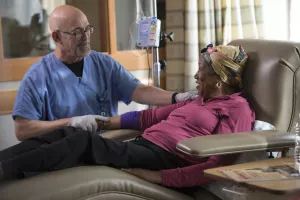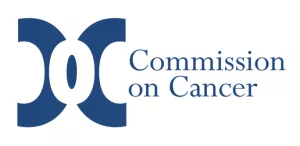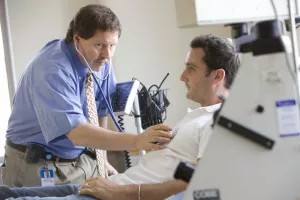Bone marrow and stem cell transplants offer the possibility of a cure for people diagnosed with complex cancer or a blood disorder. We’re proud to be home to several breakthroughs for transplants and will provide a comprehensive therapy plan developed exclusively for you.
Caring is in our DNA
When it comes to making the very important decision of where to receive care for your cancer or blood disorder, you can feel confident knowing that your health is in expert hands at Tufts Medicine. From our experienced nurses to our skilled physicians, your care team will work together as one to prioritize your health and healing.
Tufts Medicine performed Boston's first bone marrow transplants in the 1950s and pioneered "mini-transplants" for patients who can't tolerate traditional intensive transplants. Throughout our history, we've helped thousands of people with life-saving bone marrow and stem cell transplants. Compassionate, personalized, cutting-edge care is in our DNA.

Treatments
Transplants use the stem cells found in your blood, also known as seed cells, that can become any one of the blood cell types: red blood cells that carry oxygen, white blood cells that fight infection and platelets that prevent bleeding.
Blood stem cells can be used to support intensive chemotherapy, to restore blood-making capability, or to provide a new immune system capable of shrinking tumors or preventing infection.
A blood stem cell transplant uses stem cells sourced from either the bone marrow (the blood-making factory in the body) or from the blood and can come from a variety of sources:
An autologous transplant is sourced from your body with cells collected from your blood and given back to you at a later time. Autologous transplants are commonly used for:
- Hodgkin’s and non-Hodgkin’s lymphomas
- Multiple myeloma
- Light chain amyloidosis
- Germ cell (testicular) cancers
An allogeneic transplant is sourced from a family member or donor who is the right match. Allogeneic transplants may be used for:
- Acute and chronic leukemias
- Myelodysplastic and myeloproliferative disorders
- Aggressive lymphomas
- Multiple myeloma
- Aplastic anemia
- Bone marrow failure syndromes
- Sickle cell disease and thalassemia
A haploidentical allogeneic transplant is sourced from a family member who is a half-match to you, including parents and children.
Our experts will work with you to identify the best treatment options for your condition.
Therapeutic cell therapy
People living with a complex cancer or blood disorder may also benefit from one of several state-of-the-art therapeutic cell therapies. Chimeric antigen receptor T-cell therapy (CAR-T) redirects cells in the immune system to provide treatment aimed directly at curing certain blood cancers. We achieve this by genetically engineering T cells in the lab to detect and destroy cancer cells and then transferring them to your body.
CAR-T is for people with the following relapsed or refractory conditions:
- Acute Lymphocytic Leukemia
- B Cell Lymphoma (selected subtypes)
- Multiple Myeloma
- Chronic Lymphocytic Leukemia
People with these and other diagnoses may also be candidates for available CAR-T clinical trials.
Awards + accreditations


From regular office visits to inpatient stays, find the healthcare you need and deserve close to home.

Meet the doctors and care team devoted to supporting you every step of the way along your path to better health.